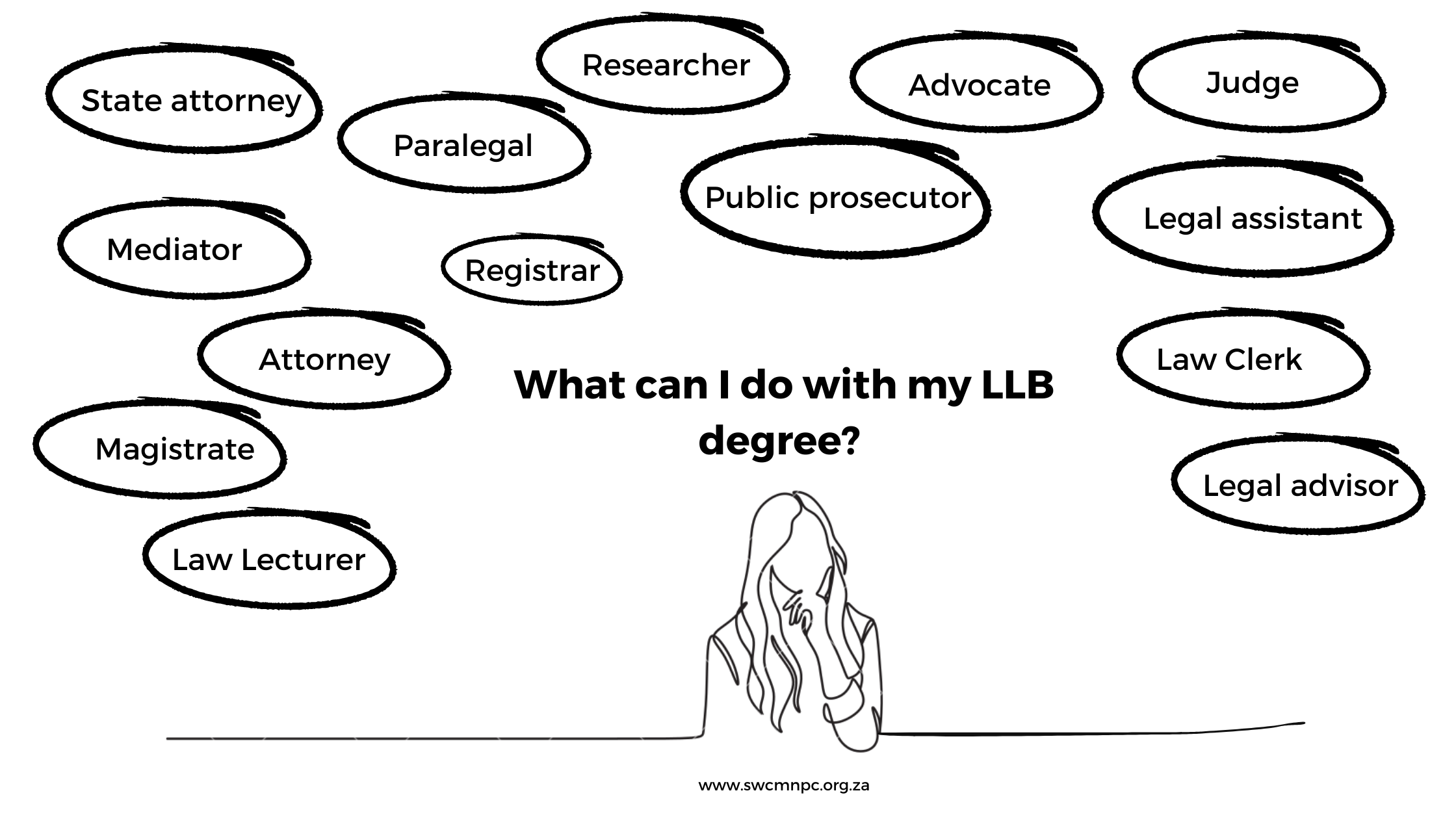Career Opportunities with an LLB Degree : Advocacy vs Attorneys’ Profession
The legal profession encompasses a wide range of practise areas, and as a law student, you will be introduced to the various areas of law in which you may practise after completing your studies. However, as your time as a student draws to a close, you begin to seek a defined path and assess your alternatives for how to best put your degree to use. This can be tricky. Thus, understanding the numerous paths you can take with your LLB degree can assist you in designing a successful path to your desired legal career.
There are a number of possibilities for law graduates, but first what is a lawyer. Any person who practises law in South Africa is referred to as a lawyer. Giving legal advice, preparing legal documents such as wills and contracts, mediating issues, and/or representing clients in court could all fall under this category of work.

As a lawyer, you have the option of practising in and within the following categories and sectors:
- Practising legal profession
- Public Sector
- Private Sector
- Academia
- Other
In this post, we will look at the first category of legal professions and what you need to know to practise in the profession. The practising legal profession is split into two (2) categories of lawyers: attorneys and advocates. Let us explore and distinguish the two in order to better comprehend them and provide some clarity on what is required to enter these roles.
ATTORNEYS’ PROFESSION
An attorney is the first legal practitioner with whom a client engages; they work in law firms. When the matter proceeds to court, the attorney has to ‘brief’ an advocate, who takes instructions from the attorney and uses the material received to argue the matter in court.
Key functions of attorneys include:
- Providing legal advice and consultation to clients.
- Drafting contracts, agreements, wills, and other legal documents.
- Handling property transactions and conveyancing.
- Representing clients in various courts, including lower and magistrate’s courts.
- Managing administrative and procedural aspects of legal cases.
To become an attorney, you must first obtain an LLB degree from a recognised South African university, then complete two (2) years of articles with a legal firm, or a six (6) month Professional Legal Training (PLT) course followed by a year of articles. The Law Society would then need you to take the Attorneys’ Admission Examinations, often known as the Board Exams.
ADVOCACY
An advocate is a legal practitioner who specialises in a variety of areas of law, particularly case presentation in court. Attorneys’ brief advocates when a specialist skill on an issue or legal study is required.
Key functions of advocates include:
- Representing clients in higher courts, such as the High Court and Supreme Court of Appeal.
- Providing specialized expertise in specific areas of law, often serving as expert counsel.
- Preparing and presenting legal arguments, both written and oral, in court.
- Cross-examining witnesses during trials.
- Assisting attorneys with complex legal cases and providing opinions on legal matters.
In South Africa, becoming an advocate is a particular and controlled procedure that includes schooling, training, and formal admission to the profession.
To become an advocate, you must first obtain an LLB degree from an approved South African university. Following that, you must complete a period of practical vocational training known as ‘pupillage’ under the supervision of a practising advocate. You can apply to be admitted to the bar as an advocate after completing pupillage and gaining the relevant practical experience. This is handled by the relevant provincial Bar Council.
In a recent episode on In My Lawful Experience, Advocate Sinako Lindazwe discusses the application process with Samantha Moloi, a student at the Johannesburg Society of Advocates.
It is vital to remember that the functions of attorneys and advocates in South Africa’s legal system are separate and complimentary. Attorneys are often in charge of first client interactions, legal research, paperwork, and various types of litigation. When a case is transferred to a higher court or requires specialised courtroom representation, attorneys frequently hire advocates to provide advocacy and litigation skills.
To summarise, attorneys practise a larger range of legal services, including advice and transactional work, whereas advocates specialise on courtroom advocacy and often handle issues in higher courts. Both professions play critical roles in the South African legal scene, collaborating to provide clients with comprehensive legal services. Becoming an attorney or an advocate in South Africa requires dedication, a strong educational foundation, and a commitment to ethical and professional conduct in the legal field.
